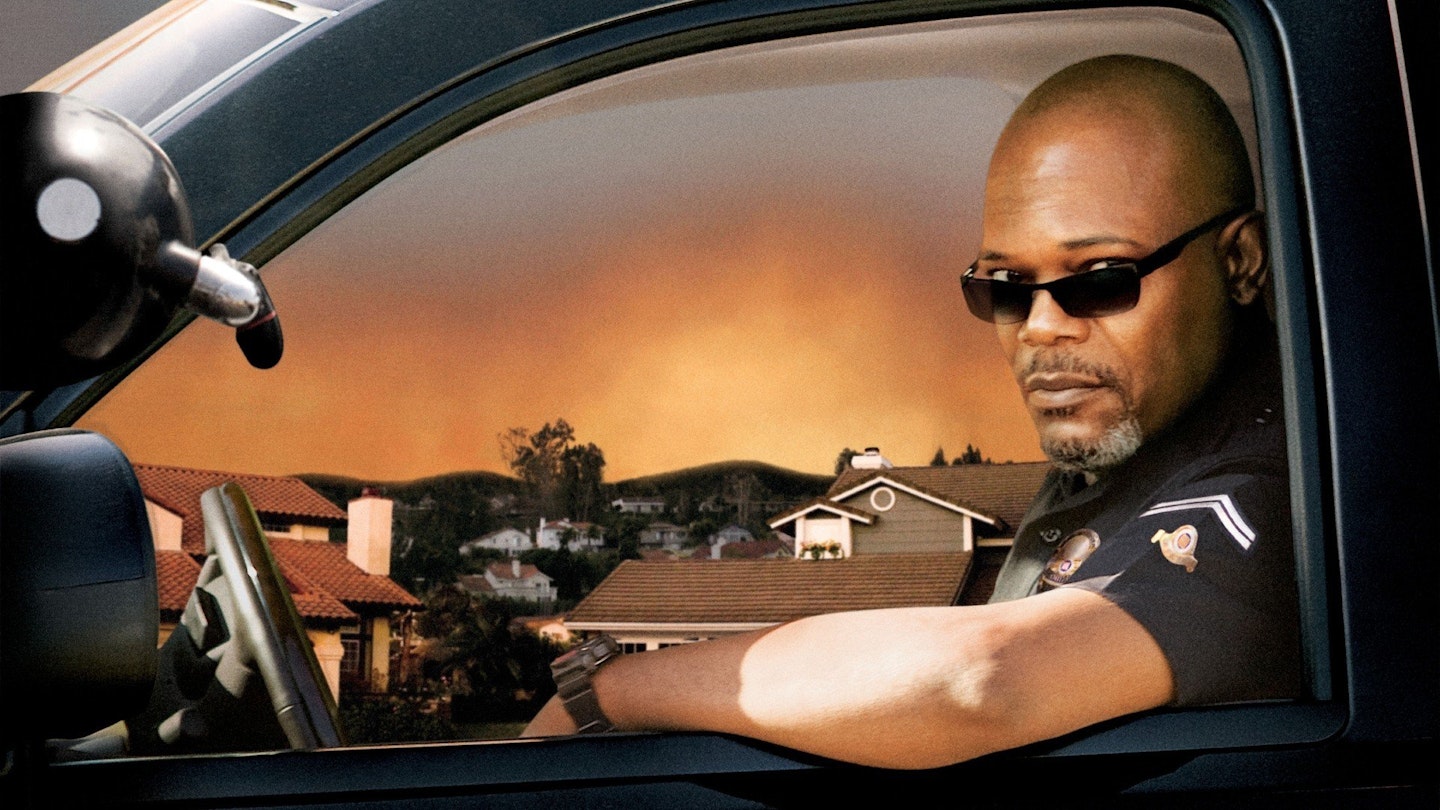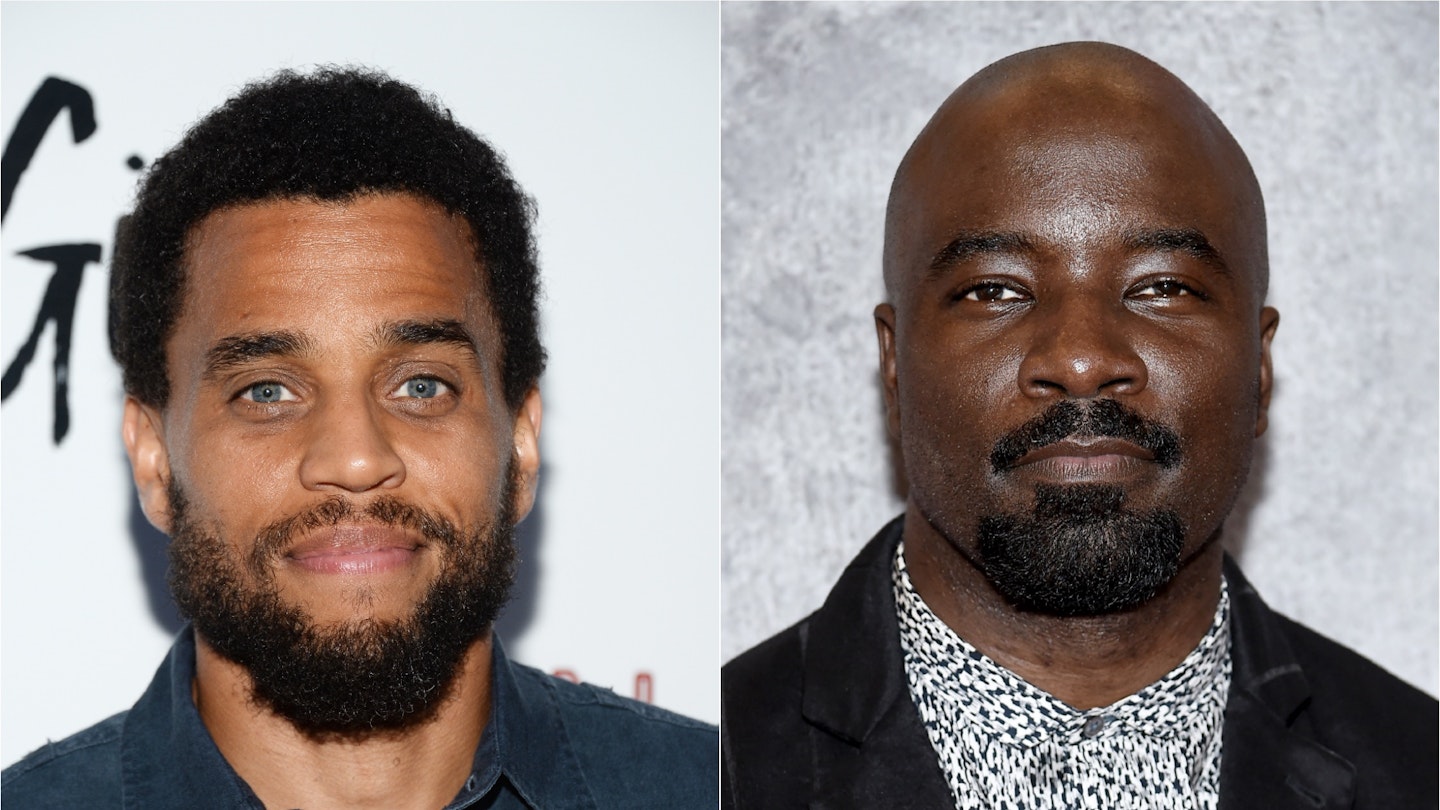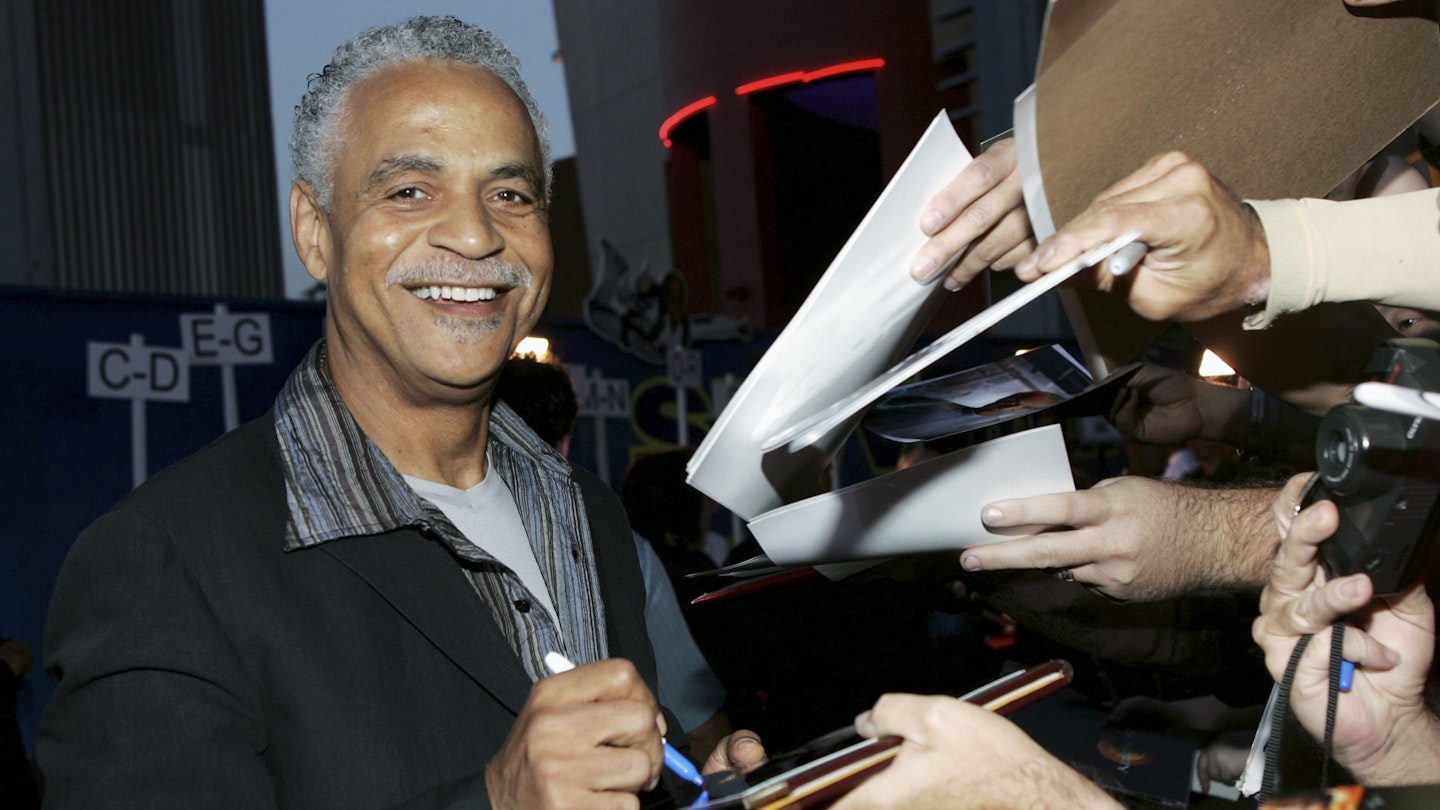Given that his last film as director was the ill-advised and best-forgotten one-star remake of The Wicker Man, a Neil LaBute Care Bears movie would be hailed a return to form — but Lakeview Terrace is a canny, effective mix of personal concerns with commercial storytelling.
The pitch is Changing Lanes (angry Samuel L. Jackson feuds with white yuppie) meets Unlawful Entry (unethical, obsessive cop uses badge to persecute nice couple), but star-vehicle social drama and stalker thriller meld seamlessly for a thought-provoking, nail-biting evening.
The script is by David Loughery and Howard Korder, though the crack an obnoxious white yuppie with an Asian trophy girlfriend makes about “the Pacific Rim” must come from a LaBute dialogue polish, and patches of talk sound as stage-honed as his plays. The film touches on the deep, uncomfortable modern issues of race and masculinity that crop up in LaBute’s all-round auteur works (no other white director in the US would chance a film about a black racist), but it’s also a literally slow-burning thriller (out-of-control brush fires get closer to Lakeview Terrace throughout, casting an infernal glow on the horizon) on the Psycho Bastard From Hell theme (sibling to the overworked Psycho Bitch From Hell sub-genre of Fatal Attraction and The Hand That Rocks The Cradle). As is often the case in threat-to-a-happy-home movies, the build-up of irritating behaviour would be hard to make a federal case over and is more agonising than the last-reel homicidal mania — though there’s a priceless twist when Abel forces his neighbours to be grateful to him for seemingly saving their lives when he’s intending to scare them out of the neighbourhood.
The Wilson and Washington characters have their own hang-ups and are okay identification figures, but the film stands or falls on Jackson in one of his most full-on performances. Abel is a simmering martinet at home and near-crazy in uniform, teeming with aggressive tics like shining security lights through windows, giving a coffee table book about African-American culture as a housewarming present, ratting out Chris for smoking behind his wife’s back, and siccing a lap-dancer on the hero when he turns up to complain about a stag party then sending his wife a DVD of the aftermath sealed with a lipstick kiss. But Jackson strings out the torment with half-plausible friendliness as he flashes a smile scarier than The Joker’s — at once ingratiating, bullying and gloating.
When we do get to the root of his hostility — everyone gets an ‘origin story’ these days — Jackson gets a stand-out barroom speech, rising from calm reason to that inimitable ‘fuck you’ shout, footnoting his many grudges against the world. Subtle tactics turn to outright home invasion, and the movie drops slightly as the modern thriller’s fallback prop — the mobile phone — enters play.


